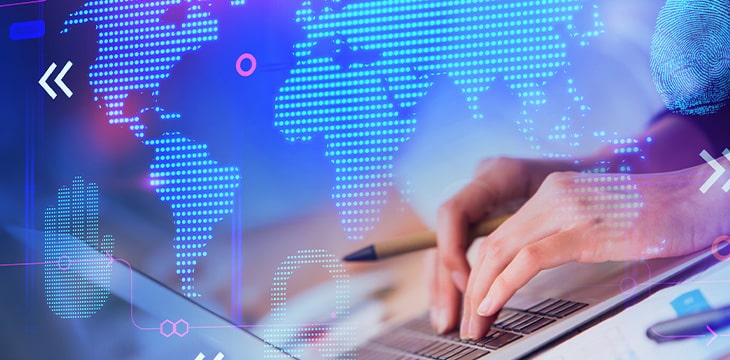|
Getting your Trinity Audio player ready...
|
Asia-Pacific’s young population, growing middle classes, and new ways to invest are producing a technology startup boom in the region, according to a new report by KPMG and HSBC. The report, titled “Emerging Giants in Asia Pacific,” identified 100 high-growth startup companies, including fintech, biotech, software-as-a-service (SaaS), blockchain, healthcare, and artificial intelligence (AI).
The report said that venture deals in the region reached a record US$116.91 billion in 2021. After attaining the previous high of $152.68 billion in 2018, there was a drop in 2019-2020 that still beat previous years, and the first quarter of 2022 has already seen $32.62 billion worth of deals.
Notably, blockchain still remains low on the “Emerging Giants” list and focuses on DeFi and trading applications, NFTs (by far the largest), blockchain real estate, play-to-earn games, and distributed organizations (DAOs). However, a blockchain that could process and store extremely large amounts of data could easily influence other verticals most wouldn’t associate with blockchain and digital assets. These include digital payments, supply chain solutions, IoT security, industrial automation, and “digital twins,” as well as medical research and healthcare applications.
Digital asset trading is still officially banned in China, though financial hubs in Singapore, Malaysia, and Hong Kong have seen more activity thanks to a friendlier regulatory approach. The report highlighted Vietnam’s Sky Mavis (an NFT game developer), South Korean exchange Dunamu, and Taiwan’s Maicoin. China remains in the blockchain game via non-financial applications, like distributed ledger company Hyperchain.
For the report’s purposes, “Asia-Pacific” includes East Asia (Mainland China, Hong Kong, Taiwan, Japan, and South Korea), Southeast Asia (Singapore, Indonesia, Malaysia, Thailand, and Vietnam), as well as India and Australia. It identified 12 key markets in the region and a selection of specific companies within each market that best reflected growth trends.
Messaging apps are merging with digital payment networks, like China’s WeChat and Alipay, South Korea’s Kakao, and Vietnam’s Zalo. Some of these, like Alibaba-backed Paytm in India, are e-wallets that also integrate other services like shopping, insurance, travel, and more.
Factors that have prompted this growth
The report said that Asia-Pacific’s emerging growth companies are set to profoundly impact the shape of the wider global economy. There are also the now-familiar references to popular 21st-century business trends such as “green” innovation, sustainability, ESG, and “carbon-neutral” goals.
The report acknowledged that COVID-19 pandemic measures have contributed to a growth in digital business and commerce, as more people meet and shop from home rather than in person, and international travel is restricted.
But at the same time, other essential factors in the APAC region also played a part. There’s a fast-growing Asian middle-class, with China and India alone projected to have a total of 2 billion people who see themselves as “middle-class,” followed by another 100+ million in Indonesia, the Philippines, and Vietnam. The Southeast Asia region also has a high percentage of “Gen Z-ers” that marketers love to call “digital natives” and who particularly love using mobile/wireless devices with easy access to various services within a single app/platform. These factors have joined to build new interest and ample investment opportunities in the technology sector.
KPMG/HSBC called Asia-Pacific “the world’s growth engine,” reflecting claims often heard in business and economic media in recent years. More traditional high-technology markets in Europe and North America have appeared to stagnate recently amid political turmoil and aging populations—Asia is certainly not immune to these problems, but in general, appears to have a more future-oriented and technology-friendly public, with investors more likely to look for innovation and take risks.
“Add developed financial hubs sitting alongside populous, high-growth economies to the mix — such as Singapore + Malaysia/Indonesia and Hong Kong + Mainland China — and you get magic,” it said.
Overall, there are few real surprises in KMPG/HSBC’s report for anyone interested in the technology business or venture investments. The line “the future is Asia” and similar claims have persisted for some time now, with plenty of evidence to support it. As for blockchain itself, it’s in danger of becoming yet another tech buzzword and side-issue unless the industry starts to see it as useful for something other than trading, investing and speculating.
The BSV industry promotes the message that blockchain could process and secure data across all industry sectors, financial or otherwise. It will take some big leaps in understanding for investors and the public to really appreciate this concept and break the artificial links that tie blockchain to finance and get-rich-quick schemes.
Watch the BSV Global Blockchain Convention Dubai 2022 Day 1 here:
https://www.youtube.com/watch?v=ggbZ8YedpBE
Watch the BSV Global Blockchain Convention Dubai 2022 Day 2 here:
https://www.youtube.com/watch?v=RzJsCRb6zt8
Watch the BSV Global Blockchain Convention Dubai 2022 Day 3 here:
https://www.youtube.com/watch?v=RzSCrXf1Ywc

 02-14-2026
02-14-2026 




